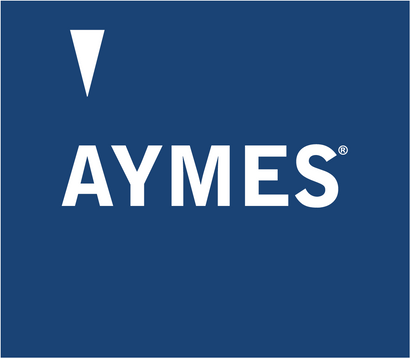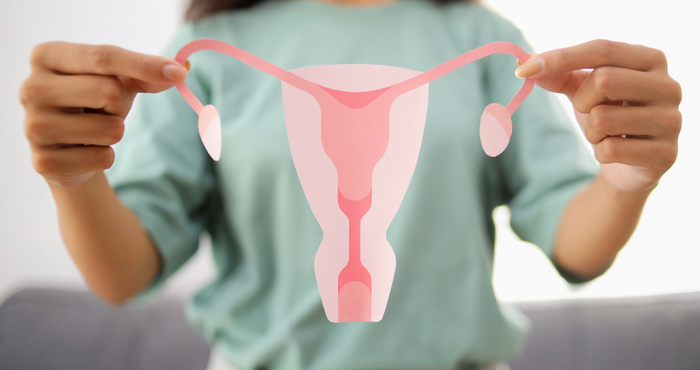Your Cart is Empty
Erratic, unpredictable, draining and devastating…… are some adjectives used by some individuals with endometriosis to explain their symptoms. These symptoms could range from their relationship with food, weight concerns, gut symptoms such as bloating, constipation, diarrhoea, inability to evacuate completely, severe abdominal pain and their ability to lead a normal life.
To give a background, most people associate endometriosis with painful periods and infertility. However, it can start as early as puberty and leave lasting impacts even after menopause, affecting 2-10% of the general population and 50% of those with infertility.1 Most individuals with endometriosis (IWE) have a long, painful journey to diagnosis, on average 8-10 years - where, more likely than not, they have had to be their own advocate to get the right care. As a by-product of the long wait, a lot of individuals tend to use self-management techniques, including dietary modification.
To understand the impact dietitians can make on this front, I have been involved in a three staged study:2
- Survey of IWE with the help of Endometriosis UK
- Survey of Dietitians who have worked with patients with the condition
- A qualitative interview study with 10 IWE (publication pending)
The Survey of IWE explored various aspects - anthropometry, weight changes, food avoidance, supplementation use, functional gut symptoms, source of nutrition advice and dietetic involvement (The first stage of the survey of IWE received a response by 1385 individuals).
The dietitian survey response only attracted 21 dietitians in the UK, with great difficulty. The difference in the ability to recruit participants to stages 1 and 2 of the study speaks volumes about the huge gap in need versus provision of dietetic care.
Dietetic input is not a cure for endometriosis. Several systematic reviews have concluded that although certain dietary patterns and nutrients may improve endometriosis symptoms, overall, the evidence base is currently too weak to make specific recommendations.3,4
Current available medical management options (e.g. surgery, analgesia and hormonal medications) have unacceptable side effects and consequences for many, particularly those trying to conceive. None of these medical options provide a cure – endometriosis can recur even after medical management or surgical removal.5,6 Research has shown that IWE prefer non-invasive and non-hormonal treatments to help cope with their symptoms. Lifestyle changes can potentially play a part in this. Symptoms affecting the quality of life require long-term support - and dietetic care could make a paramount difference here.
Main findings from the IWE Survey:
Though the primary goal was limited to identify the extent of functional gut symptoms in Endometriosis, the dietetic need painted a much larger picture as shown below:2

An extract from the qualitative interview:
“I was in that much pain constantly. I suddenly ran back and forth to the toilet, or you know what I mean? It was just a horrible, horrible circle” (Interview respondent- IWE study).2
On the other hand, the dietetic survey highlighted the need for more training, research, and resources to help ensure safe and effective practice. More hands are required to pave the way forward.
When present during an Endometriosis multidisciplinary team (MDT) meeting- one can appreciate that the team tries their best to help reduce symptoms that impact the quality of life and prevent surgery/follow-up surgery in some cases. The point is loud and clear that dietitians belong in that MDT!
With existing nutritional knowledge, dietitians can help these individuals. The first step could be to give IWE an option to access dietitians and support them with improving their functional gut symptoms.
What the future might hold with further research and practice could be ground-breaking. Further efforts are needed in this direction to standardise dietetic practice in Endometriosis.
This article was peer-reviewed by Dr Kate Maslin
References:
1. Janssen EB, Rijkers ACM, Hoppenbrouwers K, Meuleman C, D’Hooghe TM. Prevalence of endometriosis diagnosed by laparoscopy in adolescents with dysmenorrhea or chronic pelvic pain: a systematic review. Hum Reprod Update. 2013 May 31;19(5):570–82.
2. Deepak Kumar K, Appleby-Gunnill B, Maslin K. Nutritional practices and dietetic provision in the endometriosis population, with a focus on functional gut symptoms. J Hum Nutr Diet [Internet]. 2023 Feb 16; Available from: http://dx.doi.org/10.1111/jhn.13158
3. Endometriosis guideline [Internet]. [cited 2023 Mar 27]. Available from: https://www.eshre.eu/Guidelines-and-Legal/Guidelines/Endometriosis-guideline.aspx
4. Overview | Endometriosis: diagnosis and management | Guidance | NICE. [cited 2023 Mar 27]; Available from: https://www.nice.org.uk/guidance/NG73
5. Harada T. Endometriosis: Pathogenesis and Treatment. Springer; 2014. 477 p. Available from: https://doi.org/10.1007/978-4-431-54421-0
6. Nezhat CR, Berger GS, Nezhat F, Buttram VC Jr, Nezhat CH. Endometriosis: Advanced Management and Surgical Techniques. Springer Science & Business Media; 2012. 296 p.









